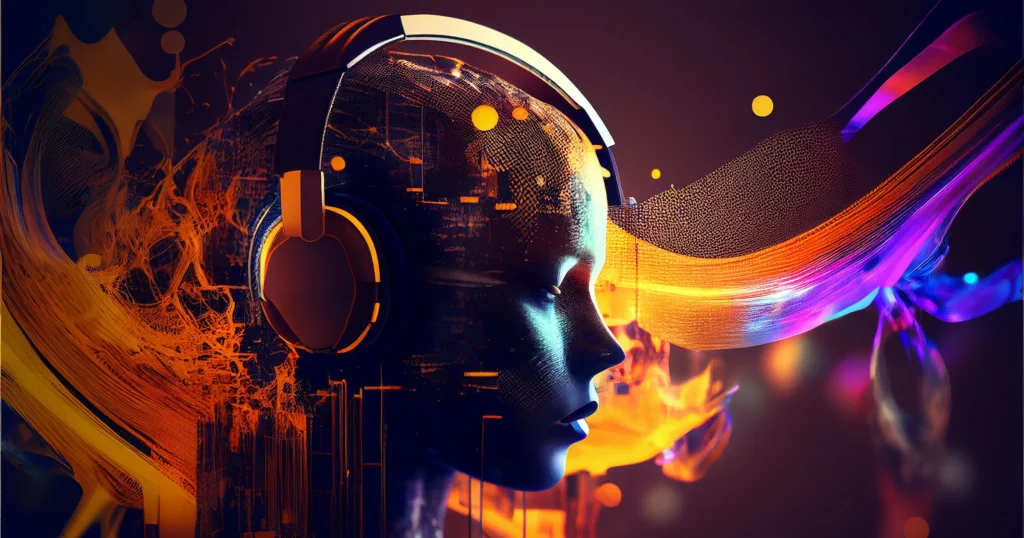Is AI Killing Music or Just Remixing Its Future?
AI in music is blowing up—and not just in producer circles. From beatmakers to bedroom musicians, everyone’s got opinions. Some folks are hyped. Others? Straight-up panicking.
I’ve seen this movie before. New tech shows up, and people freak out like it’s the end of “real” music.
We’ve been here before—with auto-tune, drum machines, even electric guitars. (Yep, some folks actually hated guitars for being too noisy. Wild, right?)
So, is AI the villain? Or just the next synth in the studio?
A Brief History of Music and Technology
The music technology evolution has never been smooth sailing. Every few decades, someone declares “this new thing” the apocalypse. Spoiler: It never is.
Back in the day, people said drum machines were going to ruin rhythm. They also said sampling was theft. Don’t even get me started on the outrage over auto-tune—until Cher dropped “Believe” and suddenly, it was cool again.
The trend is obvious: what starts as controversial ends up essential. Entire genres are built on what was once called cheating. Hip-hop, EDM, hyperpop—all of them owe their sound to tools people once booed.
Honestly, AI is just the new kid in the gear bag.
The Rise (and Loudness) of AI-Generated Music
Let’s talk numbers. French streaming platform Deezer recently reported that 18% of songs uploaded today are fully AI-generated. That’s over 20,000 robot-made tracks. Per. Day.
Let that sink in. 20,000. Every. Day.
Platforms like Suno and Udio are cranking out tunes faster than a caffeinated beatmaker. The industry’s major players—Universal, Sony, Warner—they’re sweating bullets. Why? They’re accusing these AI tools of learning on copyrighted music without permission.
And look, I get it. If you’re an artist barely making lunch money from Spotify streams, the idea of bots eating your paycheck feels like a slap in the face.
But here’s the twist—this isn’t just about money. It’s about control. About who gets to call the shots in the future of music. And honestly? That’s a way bigger deal.
What AI Can and Can’t Do in Music Creation
Let’s give credit where it’s due—AI music tools are seriously next-level stuff. Need a synth hook that sounds like Daft Punk made it in a blender? Done. Wanna turn a sad poem into a soft ballad? Just say the word.
AI’s great at “what if” moments. It fills in blanks, suggests chords, spins out drum loops. But—and this is huge—it doesn’t feel. Like, zero vibes.
Everything it makes is derivative. It doesn’t know heartbreak. It’s never stared out a rainy window listening to Bon Iver. It just predicts what sounds “right” based on what it’s trained on.
So yeah, AI-generated music can be functional. Even catchy. But it often lands in the uncanny valley of sound—too clean, too perfect, too… meh.
Bottom line: AI’s a brilliant co-producer, but it’ll never be the frontman.
Authenticity in Music: Are We Losing the Soul?
This one’s tricky. A lot of people are worried that authenticity in music is going out the window. That AI is making everything feel fake.
But let’s be honest—was every Top 40 hit in the last decade really a soul-baring masterpiece? Nah. A bunch of them are cut-and-paste songs built by teams of writers and pushed through algorithmic hit machines.
So if AI makes a track that slaps… is that any worse than a human-made song built for playlist skips?
Sometimes, authenticity isn’t about origin—it’s about connection. If a song hits you in the feels, who cares if a human or a hard drive made it?
That said, I get the discomfort. There’s something sacred about a song that comes from a lived experience. And AI doesn’t live. It simulates.
We should hold space for both perspectives. But let’s not throw shade at AI for doing what pop stars have done for years—following formulas that work.
The Money and Morality Behind the Music
Okay, time to talk about the elephant in the studio: copyright.
The thing that makes me squirm about AI in music isn’t the tech—it’s the shady training methods. A lot of AI models are trained on existing songs without asking the artist. That’s not inspiration. That’s theft.
Imagine you’re a small artist, and one day, you hear a track that sounds eerily like yours… but it was made by a machine. Trained on your work. And you weren’t even in the loop.
That’s where it crosses the line.
We need rules—real ones. Transparency on training data. Shared revenue models. Legal frameworks that put artists first.
Because innovation’s awesome… until it bulldozes the people who built the house.
AI Music Tools Are Leveling the Playing Field
Now here’s where it gets exciting.
AI music tools are giving a voice to people who’ve never had one. Literally.
Picture this: a teen in a rural town with no money, no band, no studio—but they’ve got a phone and something to say. With free AI tools, they can write, produce, and publish a track from their bedroom. That’s insane. And beautiful.
This isn’t just a trend—it’s a movement. A revolution of access.
AI can democratize music the way GarageBand and SoundCloud did. It’s not about making Mozart clones. It’s about unlocking creativity that’s been boxed out by gatekeeping and gear costs.
And that’s pretty darn cool.
So… Is AI the Problem or Just Another Plugin?
Here’s the real question: Are we scared of AI in music because it’s too good—or because it’s not good enough yet?
Honestly, I think it’s neither. We’re scared because it challenges our idea of what music is supposed to be. Messy. Personal. Human.
But tech doesn’t kill creativity. It stretches it.
AI’s not going to write the next “Bohemian Rhapsody.” But it might help someone with no resources write the first song of their life. And that matters.
Personally, I’m more worried about algorithmic tastemaking—how recommendation engines nudge us toward sameness. That’s the real threat. Not AI songs, but AI playlists that feed us the sonic equivalent of white bread.
If we’re gonna worry about something, let it be the flattening of taste, not the tools musicians use.
Check out this breakdown from Rolling Stone on the legal drama unfolding behind AI-generated tracks.
Final Thoughts: Let’s Keep It Real
So, is AI in music the end of human creativity? Nah. It’s just a remix.
Like every tech that came before, it’s got potential—and problems. But it’s up to us to decide how it plays out.
If we use AI to inspire, assist, and amplify rather than replace, we’ll make something beautiful out of it. If we don’t? We’ll get stuck listening to soundtracks that sound like they were made in a spreadsheet.
Let’s not let the machines write the whole song. But maybe—just maybe—they can help us hum the first note.


